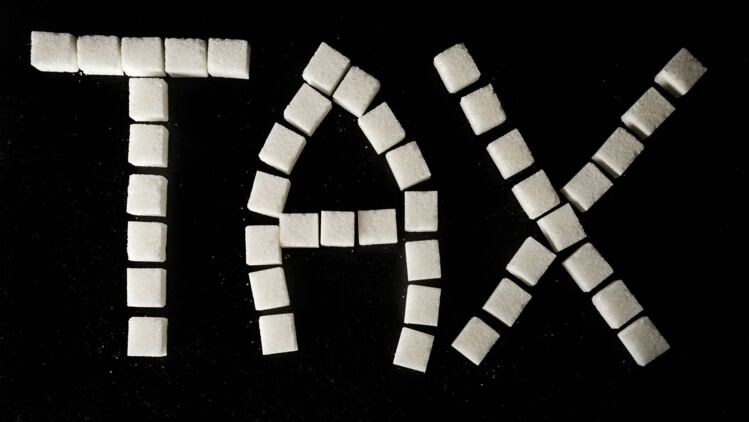Arguments against a sugar tax
The New Zealand Taxpayers’ Union is a firm advocate against the taxation of sugar in the country, and released a report supporting its argument titled ‘The Bitter Truth: Why don’t sugar taxes work?’.
“[Sugar taxes] are remarkably ineffective as a way of getting people to reduce their consumption of sugary drinks, let alone reducing their consumption of calories or lowering their body weight,” said Christopher Snowdon, Head of Lifestyle Economics, Institute of Economic Affairs in the report.
“Fizzy drinks only contribute a tiny fraction of a nation’s calorie intake and those who consume them are not very sensitive to price.”
The report authors added that the chain of logic followed by sugar tax supporters is ‘too simple’.
“While it’s true that taxes lift prices and reduce demand, the degree of their impact on consumption decisions varies, [and] when researchers consider these factors, any weight loss attributable to reductions in SSB consumption become very small.”
“While public health advocates claim these health benefits are ‘progressive’, there is insufficient evidence to show low income households experience the disproportionate consumption changes that would be needed for that to be true.”
They added that if evidence proving that sugar-sweetened beverages (SSB) taxes create health benefits is not sufficient, ‘then they should not be implemented’.
The report also states that price elasticity (a factor that determines the effect of SSB taxes on demand) has been ‘drastically over-estimated’ in many studies, because consumers are able to easily substitute current SSBs to other, lower quality SSBs if taxed.
“[Research shows that] the price elasticity of demand for SSBs is between -0.2 and -0.3, which implies a reduction of between 2% and 3% in SSB consumption in response to a 10% increase in price.”
It also elaborates on how consumer behaviour and externalities need to be examined more deeply, and the likely regressive nature (disproportionately hurts the poor compared to the wealthy) of a sugar tax.
“Public health academics regularly claim that obesity represents a failure of markets and that a tax on SSBs would create substantial health benefits. That’s nonsense,” they concluded.
New Zealand Food and Grocery Council CEO Katherine Rich shares this opinion, saying that: “Sugar taxes have not worked to reduce obesity in any countries where they have been implemented. Not one.
“When you look at where sugar taxes have been put in place they tend to be countries where the government is either struggling to balance its books or has difficulty collecting income taxes.
“Mexico is a good example. While sales dropped slightly in the beginning by the end of the first year sales had returned to pretax levels and have been growing since.”
“Sugar taxes and other sorts of taxes on sodium or fat tend to be incredibly regressive and paid by a nation’s poorest citizens.
“In New Zealand consumers continue to switch to low or no sugar drinks as companies here have reduced the sugar levels in popular brands and launched new ones. Kombucha [is an example, having] gone from almost nothing to 17% of chilled drink sales. In New Zealand one in three sales is low or no sugar.”
Several countries in Southeast Asia have already implemented sugar taxes, including the Philippines, Thailand and Brunei. Malaysia will be implementing a soda tax in April 2019, and Singapore is currently seeking public opinion on the issue.
Arguments for a sugar tax
On the other side of the sugar tax coin, researchers from the University of Otago have released their own research saying that ‘self-regulation is not working’ and that a sugar tax is ‘justified’.
“New Zealand relies on industry self-regulation and has called for better labelling so individuals can take responsibility for their own sugar intake,” said lead author Dr Kirsten Robertson.
“[The onus with self-regulation] falls on individuals to regulate the quantity and serving size of sugar they consume from SSBs. However, the present findings show SSB consumers are less likely than others to try to avoid sugar or calories.
“Thus measures to increase individual responsibility such as better labelling as recommended by the New Zealand government are unlikely to be effective.
“[Given] the current findings showing that SSB consumers show limited healthy eating behaviour (or indeed control of sugar intake), we feel a sugar tax is justified. We therefore support the sugar tax recommendation.”
In addition to this, the New Zealand public also appears to be in favour of a sugar tax, with a University of Auckland-commissioned poll finding that 80% of New Zealanders aged between the ages of 18 to 30 supported it, up 15% from in 2017.
“This was a huge surprise because both groups were by far the largest adult consumers of soft drinks,” said researcher Dr Gerhard Sundborn to Health Central.
The New Zealand Beverage Guidance Panel predicts that a sugar tax would work both upstream (encouraging reformulation and low-sugar products) and downstream (discouraging consumers by passing on costs) to affect sugar consumption.





